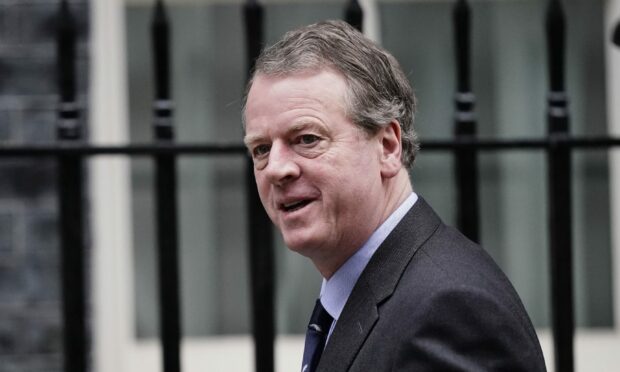Controversial new laws making it easier for people to change their gender have gone to court following a lengthy showdown between Holyrood and Westminster.
The SNP’s reforms passed comfortably by 86 votes to 39 last December after days of long-running debates in parliament and angry scenes from protesters.
Less than a month the UK Government stepped in to block the divisive legislation, resulting in a legal fight which has now started in Edinburgh.
Here’s all you need to know about the laws which have sparked major disagreements within various political parties.
What does the law propose?
The reforms intend to simplify the process for transmen and transwomen wishing to be legally recognised in their new gender.
Transgender Scots would be able to self-identify without a medical diagnosis, and would only have to live in their acquired gender for three months instead of two years.
The government said the law was focused on removing obstacles for trans people by making it easier for them to obtain a new birth certificate.
Transmen and transwomen do not have to go through this process and many already live in their acquired gender without formal legal recognition.
Significant amendments put forward to alter the policy in Holyrood last year were rejected by the SNP and Greens.
An attempt to ban sex offenders from being able to change gender was narrowly defeated.
Backing her plans at the time, ex-First Minister Nicola Sturgeon said: “I’m a feminist, I will argue for women’s rights, I will do everything I can to protect women’s rights for as long as I live.
“But I also think it’s an important part of my responsibility to make life a little bit easier for stigmatised minorities in our country.”
Why did it prove controversial?
Opponents of the reforms have long claimed women would be put at risk by making it easier for men to self-identify as women.
Vocal critics have included Harry Potter author JK Rowling, who controversially wore a T-shirt describing ex-First Minister Nicola Sturgeon as a “destroyer of women’s rights”.
During a heated Holyrood debate on the topic last December, one protester who opposed the law lifted up her skirt and yelled out an obscenity in the public gallery.
Police were forced to intervene as activists against the reforms repeatedly heckled MSPs debating in the chamber.
Months later then finance chief Kate Forbes – who was running to become SNP leader – said she did not support the proposals.
Perthshire SNP MSP Jim Fairlie voted against the reforms at the time, as did Fife’s Annabelle Ewing. Both abstained in the first round of voting.
Why has this gone to court?
In January, Tory Scottish Secretary Alister Jack stepped in to stop the SNP’s gender reforms from becoming law.
UK Government ministers argued the policy could impact UK-wide equality laws, despite the proposals being approved in Holyrood.
The SNP claimed the Tories were actively trying to undermine devolution, and launched a legal challenge against their decision.
The vast majority of Conservative MSPs in Scotland are opposed to the reforms and voted against them.
The case will initially be heard in Edinburgh’s Court of Session, but could potentially go all the way to the UK Supreme Court.
However, in April a Dundee University public law expert told us the SNP’s hopes of succeeding in court were slim and warned Westminster is in a much stronger position.




Conversation